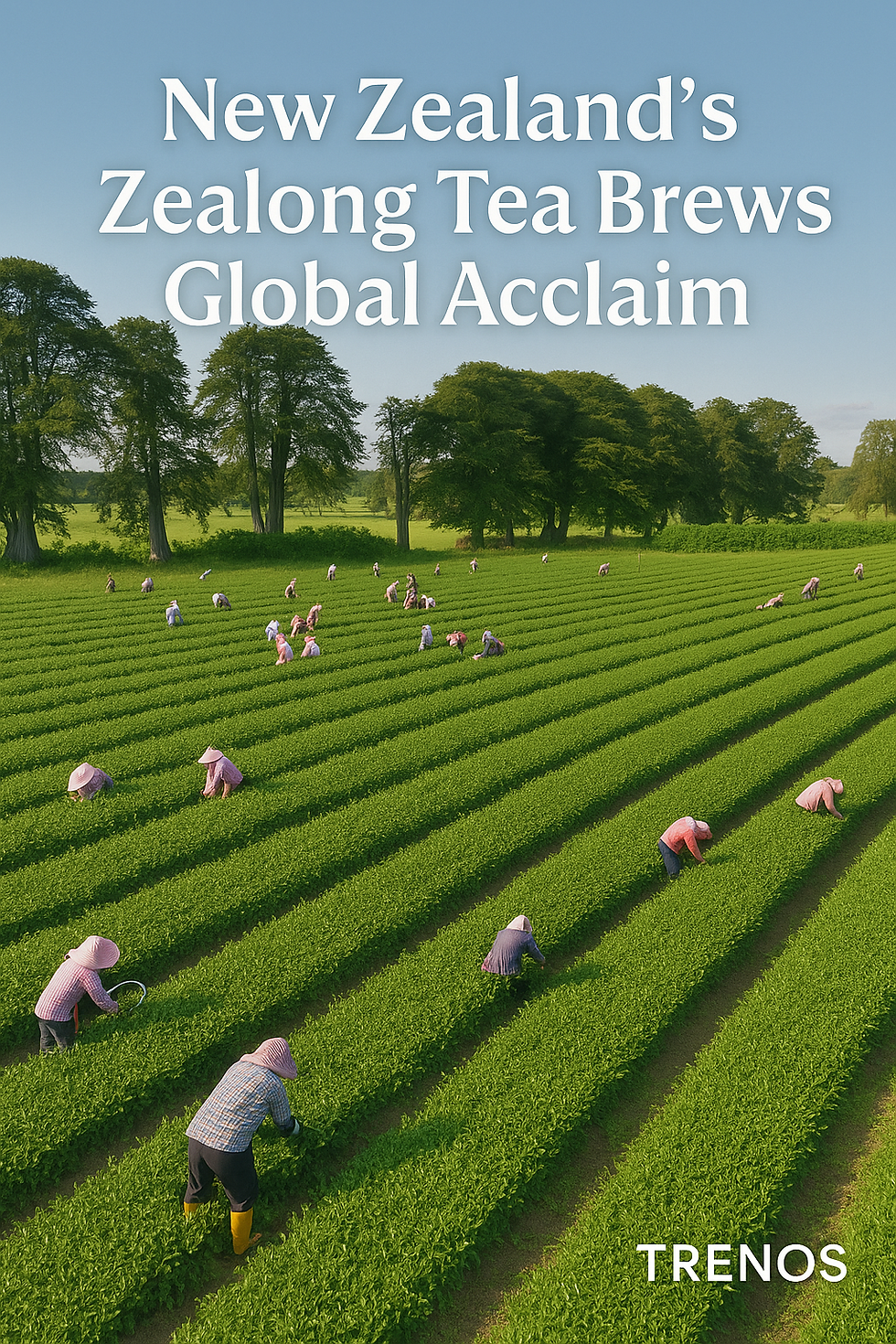TRENOS SiGINT: NXW & SIG Launch Marine Whey Yoghurt In Dubai
- JC - Analyst
- Nov 10, 2025
- 2 min read
JC Analyst: November, 2025.

Signal:
The partnership between NXW and SIG Group represents a meaningful advance in the nutrition‐technology ecosystem. NXW’s Marine Whey ingredient – micro-algae derived, protein- and fibre-dense, non-GMO, produced at a fraction of the cost and environmental footprint of dairy – is being brought to market via SIG’s global aseptic‐packaging and filling infrastructure. The first commercial product, a multi-unit run of a UHT Peach Power Marine Whey yoghurt for MEA, is a commercial proof point of the category’s viability. This milestone advances both the “nutrition from water” category and the packaging‐enabled functional-food segment.
Human Factor:
For consumers in MEA and similar regions, the story matters: high-quality protein and fibre at affordable price points, in a familiar yoghurt format and local taste profile, packaged for long shelf-life via aseptic technology. It taps into rising demand for functional nutrition that’s accessible, sustainable and locally adapted. For innovators and brand owners it signals novel proteins (micro-algae, aquatic) can scale via established filling & packaging systems.
TRENOS Metrics Snapshot
Field | Data Point |
Signal | First commercial product run of Marine Whey™ via SIG in MEA |
Data Point | 2,000 units of UHT Peach Power yoghurt produced |
TikTok Views | (not publicly disclosed) |
Retail Footprint | MEA region entry point; UHT format allows wide distribution |
Ingredient Format | Marine Whey™ powder for fortification (protein + fibre) |
Product Range | Starting with yoghurt; further high-value nutrition solutions next |
Consumer Segment | Functional nutrition consumers in MEA (affordable segment) |
Brand Origin | NZ-founded NXW, now Portugal-based + Swiss packaging partner SIG |
Export Status | From Portugal HQ production + global packaging network |
Trend Classification | Novel aquatic-based protein + aseptic functional food |
System Pressure Point | Need for affordable, sustainable protein sources + long-shelf packaging |
Momentum | High — new category milestone achieved, partnerships scaling |
Sentiment | Positive — innovation + affordability narrative |
Where Signal Is Loudest | MEA region entry; packaging innovation; aquatic-protein ecosystem |
Related Links | NXW/SIG announcements |
Long Play -NXW & SIG Launch Marine Whey Yoghurt In Dubai
This milestone marks the early phase of a broader structural shift: the protein marketplace is expanding beyond traditional dairy and plant proteins into aquatic biotech sources. NXW’s Marine Whey™ leverages micro-algae to deliver dairy-equivalent nutrition at a lower footprint and cost. With SIG’s global aseptic packaging network as a conduit, this partnership can deliver into emerging markets where infrastructure, shelf life and affordability are all constraints.Over the next 3-5 years we should watch:
scale-up of production capacity (NXW already has HQ manufacturing capacity in Portugal)
extension of product formats beyond yoghurt into beverages, bars, baked goods and other convenience formats,
deeper regional roll-outs in Africa, Middle-East, Asia, and
second-wave pricing where functional nutrition becomes truly accessible, not premium.
The value chain connecting biotech ingredient → co-development → aseptic packaging → local distribution could become a blueprint for “affordable advanced nutrition” in the Global South and beyond.
The key risk to monitor: consumer acceptance of novel ingredients, regulatory classification of micro-algae derived protein, and speed of scale manufacture. But the first commercial run signals the category is moving from lab-to-market.
ENDS:




Comments